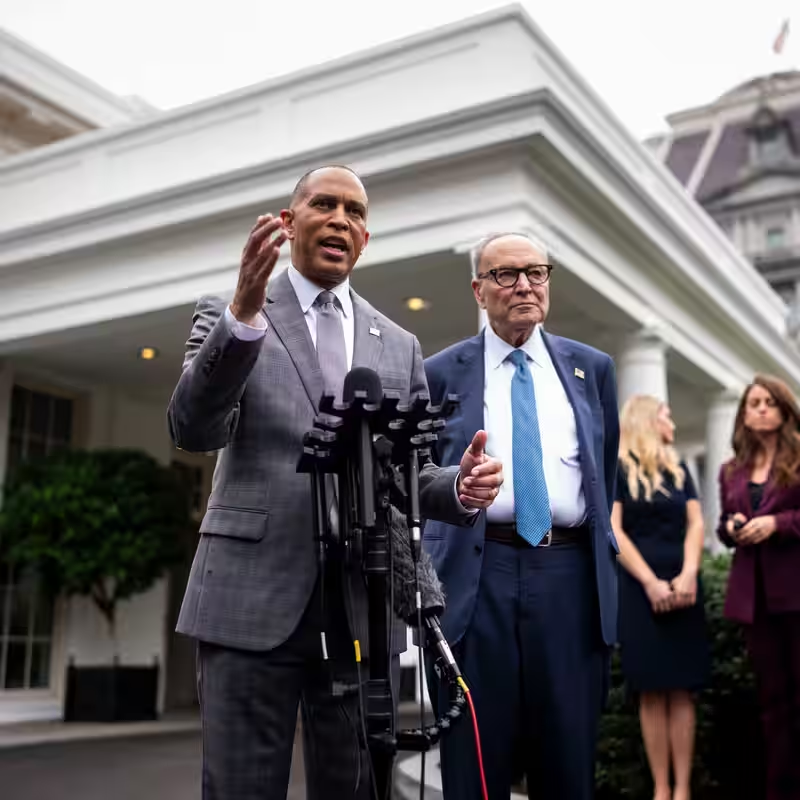The current government shutdown isn’t just about budgets—it’s about a decades-old political maneuver known as the fiscal gambit. At its core, this strategy involves creating a temporary government benefit, letting it expire on purpose, and then forcing the opposition to either extend it or face voter backlash. And right now, health insurance subsidies are the latest pawn in this high-stakes game.
What Is the Fiscal Gambit?
The fiscal gambit works like this: A party in power enacts a popular but expensive policy—like tax cuts or health care subsidies—but only for a few years. This keeps the official cost low on paper. Then, when the policy is about to expire, the party out of power is pressured to extend it, even if they originally opposed it, because taking away a benefit from voters is politically risky.
“This is designed for games of chicken and a standoff,” said Doug Holtz-Eakin, former director of the Congressional Budget Office. “And we’re living through that now.”
Health Insurance Subsidies at the Center of the Shutdown
The current shutdown hinges on whether to extend the Affordable Care Act (ACA) health insurance subsidies that were expanded in 2021 under the American Rescue Plan and later extended through 2025 via the Inflation Reduction Act. If they expire, average premiums for marketplace enrollees could more than double—a politically explosive outcome just months before the 2026 midterms.
Democrats, who originally passed the subsidies on a temporary basis to reduce the law’s official cost, are now demanding their extension as a condition to fund the government. Republicans, while critical of the tactic, are also showing signs of support—many don’t want to be blamed for skyrocketing health care costs.
A Playbook Borrowed from Republicans
Ironically, Democrats are using a strategy pioneered by Republicans. Under President George W. Bush, the GOP passed major tax cuts with sunset clauses. When those cuts neared expiration during the Obama years, Democrats—fearing a tax hike backlash—made many of them permanent.
Again in 2017, Republicans under President Trump passed the Tax Cuts and Jobs Act with temporary provisions to keep the 10-year cost estimate artificially low. This summer, they made most of those cuts permanent using a controversial budget maneuver that bypassed long-standing fiscal rules.
Cost Comparison: Tax Cuts vs. Health Subsidies
To put things in perspective, here’s how the fiscal stakes compare:
| Policy | 10-Year Cost | Status |
|---|---|---|
| 2017 Tax Cuts (made permanent in 2025) | $3.8 trillion | Permanent |
| ACA Health Insurance Subsidies Extension | $350 billion | At risk of expiring |
| 2021 Child Tax Credit Expansion | $1.1 trillion (estimated) | Expired in 2022, not renewed |
Will the Gambit Work This Time?
Not all temporary benefits become permanent. The expanded Child Tax Credit, which dramatically reduced child poverty in 2021, expired without renewal after Senator Joe Manchin opposed its continuation. There was little political fallout—suggesting voters don’t always punish lawmakers for letting benefits lapse.
“If the theory was that you could run this play on policies targeting health care for moderate and middle-income people, the jury is still out,” said Aviva Aron-Dine, former Biden administration tax policy official.
Experts Warn of Long-Term Damage
Critics argue that the fiscal gambit distorts honest budgeting. “It makes the true costs somewhat hidden,” said Doug Elmendorf, former CBO director. “We would be better off if our elected leaders would honestly face and discuss the cost of the policies they are proposing.”
Maya MacGuineas of the Committee for a Responsible Federal Budget called the tactic “immensely successful” but damaging. “This game of limping along and pretending in fake expirations… has been utilized in numerous ways,” she said.
What Happens Next?
With the government partially shut down and health care costs looming, both parties are under pressure to strike a deal. Whether the fiscal gambit succeeds this time may depend less on policy and more on politics—and who blinks first.




